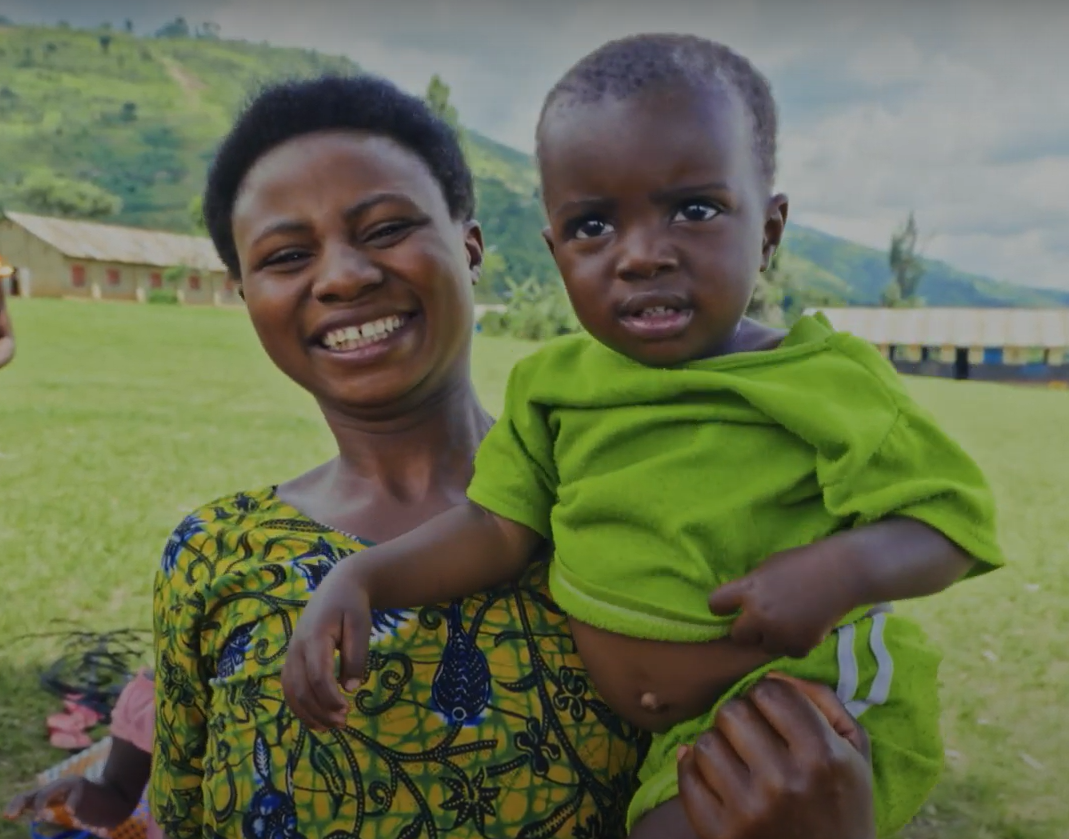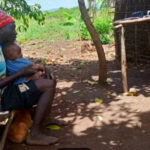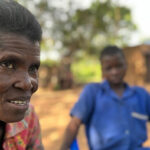In the heart of Bembe, Namayumba Sub County, Wakiso District, Uganda, Bantwana Initiative Uganda (BIU) provided technical support to the Infectious Disease Institute (IDI) teen mum group. This group had a total attendance of 22 teen mothers present for a heartening intervention focused on Early Childhood Development (ECD) education. These sessions are aimed at addressing critical aspects of child development and maternal health, while offering vital skills and knowledge to these teen mothers that can equip them to monitor the health and stability of their children. The day’s discussions were both enlightening and helpful, as they included a distressing story shared by one of the teen mums.
The story, narrated by a teen mother in our program, highlighted the severe challenges faced by new teen mothers in situations of inadequate support and information. It centered on a woman who, shortly after giving birth, experienced intense cravings for meat such as chicken and beef. Although it may appear like these cravings were simply a matter of preference, in actuality, they are a vital nutritional need for postpartum recovery and milk production. Unfortunately, her husband refused to provide her with the meat she craved which in turn led to a lack of essential nutrition and eventually significant difficulties in milk production.
In an attempt to address the situation, the father resorted to buying cow milk and went as far as heavily diluting it so it could last longer for the child’s intake. The father, though with good intention, was unaware that his attempt to save money while providing for his child would have such critical consequences on the health of the baby. This misguided solution worsened the problem, leading to severe malnutrition in the infant. When the child’s condition became critical and the child was taken to a hospital in their area, they quickly learned the situation was beyond the capacity of local facilities, requiring referral to Mulago Hospital, a larger more equipped hospital. This severe case of malnutrition highlighted the dire consequences of inadequate maternal support and nutrition as well as the need to emphasize the necessity for ECD training among teen mothers.
Not only did this story highlight the critical need for sufficient nutritional support for new teen mothers but also illustrated the broader vulnerabilities faced by them. As a group, teen mothers are particularly vulnerable to challenges related to both physical and emotional well-being, often due to a lack of access to necessary resources and support systems. The story sadly reminded us that these teen mothers need ample and accessible education, as well as support to navigate the complexities of motherhood and ensure the health of their children.
The intervention we held aimed to address such issues by providing essential ECD education. We focused on teaching the teen mothers how to observe and support their children’s development effectively. Additionally, the teen mothers were guided through sessions explaining to them the importance of understanding and monitoring a child’s growth as an essential aspect of guaranteeing their well-being, particularly in the early years of their children’s lives when development is most rapid and critical.
During the session, the participants engaged in various activities designed to enhance their knowledge and skills. We discussed key developmental indicators and how to recognize signs of healthy growth. The mothers learned about the importance of providing a nurturing environment that fosters emotional and physical development. Interactive sessions emphasized the role of play and affectionate interactions in promoting a child’s overall well-being.
The feedback from the teen mothers was overwhelmingly positive as they expressed a newfound understanding of how to observe their children’s growth more attentively and the importance of showing love and engaging in play. This knowledge is crucial for fostering a supportive environment that encourages healthy development.
One of the teen mothers had this to say, “I have realized the importance of loving and creating playtime with my child.” I also noted that these activities not only strengthen the parent-child bond but also significantly contribute to the child’s health and growth.” The program’s emphasis on these aspects provided practical tools that the mothers can apply in their daily lives.
In conclusion, through the stories and experiences shared during the field visit we highlighted the pressing need for continued support for teen mothers. The challenges faced by are often held back by limited resources and societal pressures, making programs like ours essential in bridging gaps and providing necessary guidance. The BIU teen mum network has continuously empowered teen mothers with the knowledge and skills to better support themselves and in turn their children. The network is not only addressing immediate needs, but also fostering long-term positive outcomes.
It is crucial to continue advocating for and implementing programs that address the unique challenges faced by teen mothers. The story of the teen mother who faced severe consequences due to inadequate support highlights a broader issue that affects many and can be avoided through access and utilization of information. The positive feedback and lessons learned from the participants reaffirm the value of these programs and the need for continued commitment to supporting vulnerable groups like teen mothers.

















Leave a Reply